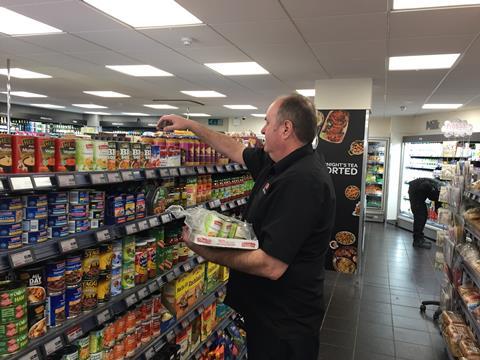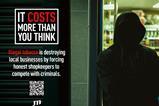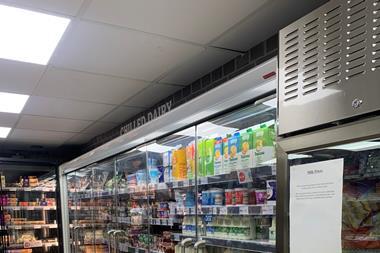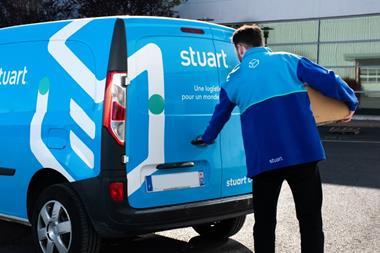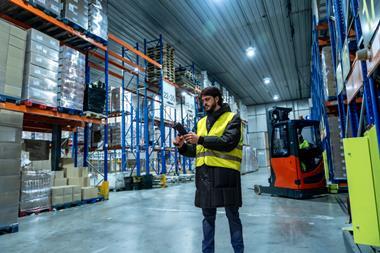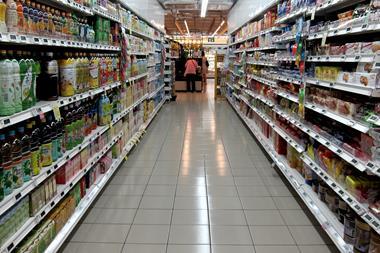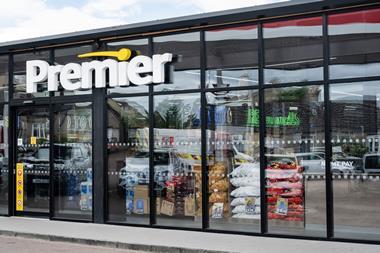With increasing pressure on retailers to be more accountable when it comes to their environmental activity, JTI UK sustainability director Ruth Forbes looks at the challenges facing them and suggests a raft of potential solutions to help.
Sustainability is high on the agenda for businesses of all sizes. In fact, there has been a sharp increase in the number of people who have adopted a more sustainable lifestyle in the last 12 months1. On top of this, 76.8% of retailers feel running a sustainable business is the right thing to do2, so convenience stores should be taking their green credentials seriously in 2023, according to Ruth Forbes, sustainability director at JTI UK.
“JTI is a proud partner of Convenience Store’s Responsible Retailing Week, helping to highlight the challenges retailers face daily, such as selling age-restricted goods and tackling the rising threat of illicit vapes and tobacco,” she says. “Another element of responsible retailing is running a sustainable store. It can be daunting to know where to start when introducing environmental initiatives, but it has never been more critical for all businesses to think and act sustainably, not just for the good of the industry, but for society and the planet.
“We know that all those involved in the convenience sector are looking to big brands and manufacturers to take the lead on environmental issues. We are committed to identifying, understanding and reducing the environmental impact of our business activities worldwide, pledging to goals that benefit both people and the planet.”
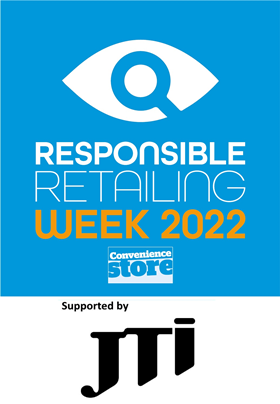
JTI’s sustainability progress
On a global level recently, JTI has significantly strengthened its Science-based Targets Initiative-aligned emissions reduction targets, reveals Forbes. By 2030, the company aims to lower emissions in its own operations by 47% and be carbon-neutral. By the same time, it aims to reduce emissions associated with its goods and services by 28%. And, by 2050, JTI is aiming to be net-zero on greenhouse gas emissions across the entire value chain3. “We’re pleased with the progress we’ve already made towards these targets, but we know there is more to do,” says Forbes.
“A massive 78% of people in the UK want to see more being done by large companies to promote sustainable packaging4. JTI is constantly developing ways to minimise the impact of its packaging, both when delivering goods to retailers and in the end-product for shoppers. The company has set targets to reduce its packaging, including plastic, and is well on its way to ensuring that the remainder is 85% reusable or recyclable by 2025, rising to 100% by 2030.”
With energy consumption another key topic on the mind of many, exacerbated by the ongoing cost-of-living crisis, JTI plans to run its UK business on 100% renewable energy sources by 2025, and aims to have reduced its overall use by 20% by 2030, notes Forbes.
“A recent JTI UK-commissioned survey found that 64% of independent convenience retailers want more sustainable point-of-sale merchandising5,” she adds. “We’re looking to help retailers run greener businesses by evolving the UK merchandising equipment JTI provides to stores across the country.” For example, the company’s new category-managed solution (CMS) gantry unit contains 17% recycled content and includes LED lighting as standard, she explains. The unit is 98% recyclable or reusable at end of life, with the aim to increase that to 100%.
Tips to make stores more sustainable
A more sustainable business will not only help retailers stand out from the crowd and attract environmentally minded customers, but it can also reduce monthly outgoings.
79% of independent convenience retailers want to hear more from suppliers on sustainability6.
Here is some environmental advice for independent and convenience retailers:
Drive energy efficiency
- Each store will be different so review overall energy efficiency levels in-store to see where improvements can be made.
- Install energy-efficient refrigeration and LED lighting to help lower in-store energy consumption.
- Look to introduce lights with motion sensors in areas that aren’t in constant use, such as a stock room, to further reduce energy use and cut bills.
- As a next step, consider what the return on investment would be if you have solar panels installed on-site.
Waste management
- Some products will be consumed immediately upon purchase, so make it easier for shoppers to correctly dispose of packaging by installing recycling bins in-store.
- Reduce the use of plastic and opt for refillable solutions on goods where possible, as this can really make a difference, as well as attract new customers.
- Digitise as much paperwork, from invoices to payslips, to reduce paper waste. Independent retailers are encouraged to choose digital invoicing for this reason and, since 2021, JTI’s price lists have been digital, saving the company from printing 175,000 sheets of paper per year!
- If a store sells fresh food, then consider partnering with a food waste app, which can be a positive way to recuperate some capital back from food that would otherwise be wasted, or donate to local charities. Retailer should also speak to their waste contractors about any food waste that is still left over.
- Invest time in training store colleagues so that all employees understand the importance of waste management and are following procedure.
Transport
- Maximise fuel efficiency – this could be by switching vehicles to hybrid/electric or even training regular drivers. A vehicle upgrade will require investment but can save money in the long-term.
- JTI UK has invested in hybrid vehicles and charging points for its team of Business Advisers, who visit key accounts, wholesalers, and independent stores each day. From 2024, the company plans to start transitioning its salesforce fleet to fully electric cars, which, by 2030, will save 776 tonnes of CO2e emissions per year.
- Review order processes to make fewer trips to wholesalers and aim to plan as far ahead as feasible to reduce multiple trips.
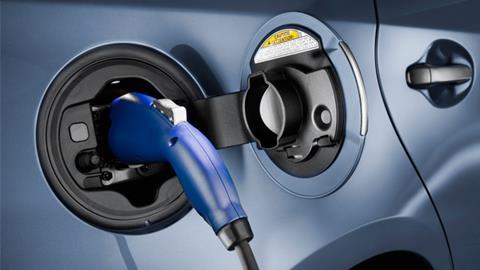
“It is time for us all to think and act more sustainably,” concludes Forbes. “And, with every business needing to work towards the government’s target to reduce greenhouse gas emissions to net zero by 2050 or before, we’re encouraging our retail partners to start thinking about changes they can make. We’re always happy to support on any environmental queries you may have and will continue to make positive changes to our business practices to lower our environmental impact and help retailers create a greener store for their community.”
For more information on JTI UK and its sustainability initiatives, visit www.jti.com/uk/sustainability
Source
1 Deloitte, 2022
2 JTI, 2021
3 Results achieved compared to a 2019 baseline.
4 The Chartered Institute of Marketing, 2021
5 JTI, 2021
6 JTI, 2021
























